In an era where water scarcity is becoming an increasingly pressing issue, the concept of water reuse should emerge as a beacon of hope. But while technological advancements have made water reuse a feasible solution, there’s a critical aspect that often goes overlooked – the social dynamics influencing its adoption.
Today, we’re looking at water reuse, not from a technological standpoint, but through the lens of societal, policy, and human behavior factors that play a pivotal role in its implementation and acceptance.
with 🎙️ Austin Alexander – Vice President, Sustainability and Social Impact at Xylem
Resources:
🔗 Have a look at Xylem’s website
🔗 Read Xylem’s zero-carbon whitepaper
🔗 Come say hi to Austin on Linkedin
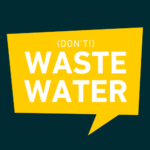
is on Linkedin ➡️
Full Video:
Table of contents
- Resources:
- Full Video:
- The societal dimension of Water Reuse
- Challenges and Misconceptions in Water Reuse Adoption
- The Role of Political Will and Public Policy
- Importance of Public Awareness and Acceptance
- Case Studies: Success Stories in Water Reuse
- Conclusion
- Full Transcript:
- Rapid fire questions:
- Other Episodes:
The societal dimension of Water Reuse
Water reuse, the process of recycling wastewater into potable or non-potable water, is not just a technical solution but a societal one.
(by the way, if you’re interested look up the technical side of wastewater reuse)
Its success hinges not only on the efficiency of the technology but also on public perception, political will, regulatory frameworks, and community engagement. In essence, the journey of water reuse from a promising concept to a widely accepted practice is a story of overcoming social and political barriers as much as it is about technological innovation.
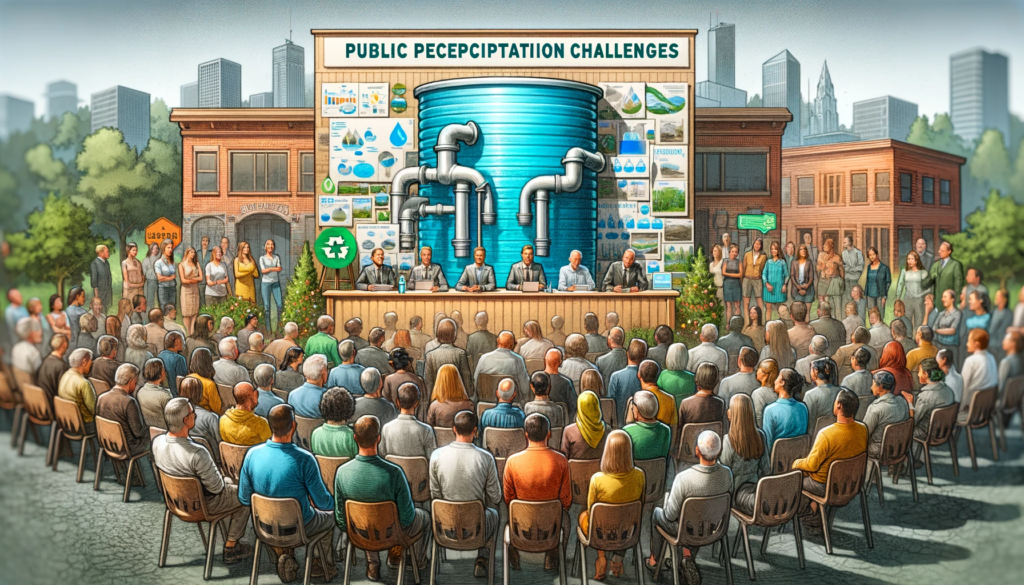
Challenges and Misconceptions in Water Reuse Adoption
Let’s cut to the chase. The road to widespread water reuse adoption is paved with challenges, chiefly among them are public perception and misconceptions. It’s one thing to have the technology to treat and recycle water, but another to convince the people who will ultimately use it.
Public Perception
The “yuck” factor is real. People often balk at the idea of using water that was once wastewater, even if it’s been treated to be as clean as, or cleaner than, their regular supply. This psychological barrier is a significant hurdle.
Regulatory and Legal Barriers
It’s not just about getting the public on board; there’s also a maze of regulations and legalities to navigate. Many regions lack clear guidelines or policies for water reuse, making it a risky venture for those who want to pioneer these projects.
Economic Hesitations
Let’s talk money. The economics of water reuse can be both a barrier and a driving force. Investing in water reuse infrastructure can be costly upfront, and without clear economic incentives or recovery models, decision-makers often hesitate.
To make strides in water reuse, we need to address these challenges head-on. This means not just advancing technology, but changing minds, shaping policies, and making the economics work.
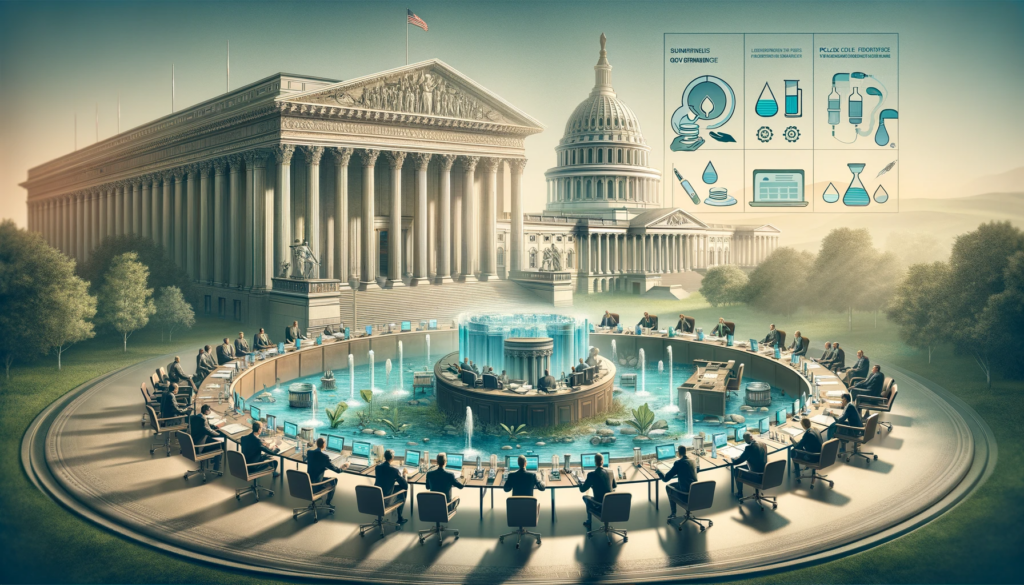
The Role of Political Will and Public Policy
Now, let’s get to the heart of the matter: political will and public policy are game-changers in the realm of water reuse. It’s not just about having the right technology; it’s about having the right policies and political backing to make water reuse a reality.
Policy Influence
The truth is, no significant water reuse project can take off without the green light from policymakers. We need laws and regulations that not only allow but also encourage water reuse. This involves setting standards, providing incentives, and integrating water reuse into broader water management strategies.
Political Will
It’s one thing for policies to exist on paper, but another for them to be actively implemented and enforced. This is where political will comes into play. Leaders and decision-makers need to champion water reuse, making it a priority on the political agenda.
Creating the Right Environment
Good policy and strong political will create an environment where water reuse projects can thrive. This involves everything from funding and public-private partnerships to community engagement and education. In essence, without the right policies and political support, water reuse remains a pipe dream.
It’s about making water reuse not just technologically feasible, but also politically and socially viable.
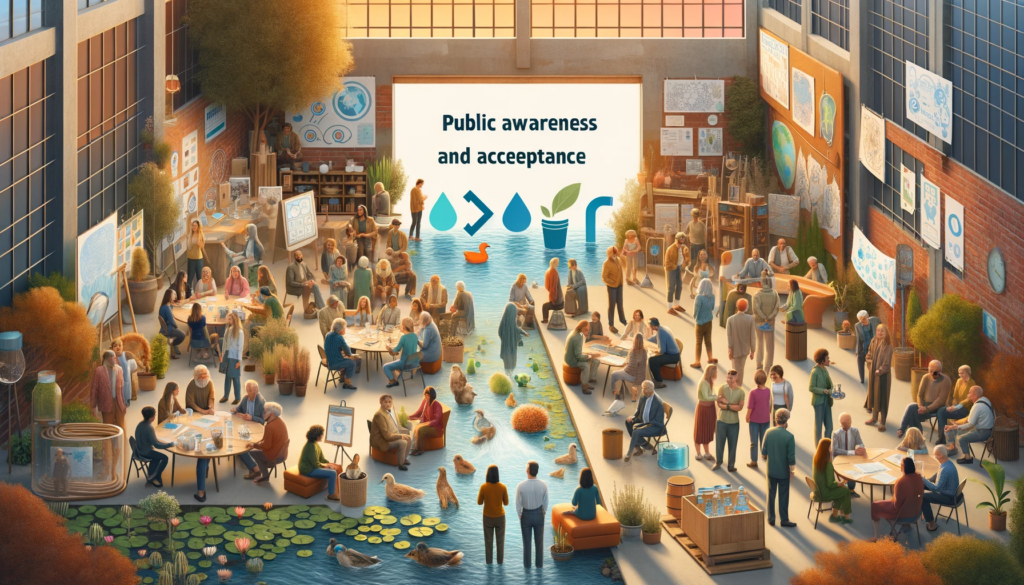
Importance of Public Awareness and Acceptance
Let’s talk about the people factor in water reuse. The technology can be top-notch, but if the community isn’t on board, it’s a non-starter. Public awareness and acceptance are crucial in making water reuse a part of our daily lives.
Breaking the Ice
First things first, we need to break down the barriers of misunderstanding and misinformation. It’s about educating people that treated wastewater isn’t just safe; it’s essential for our sustainability.
Engaging the Community
This isn’t a top-down approach; it’s a conversation. Community engagement, whether through town hall meetings, educational campaigns, or grassroots movements, is key to changing perceptions.
Building Trust
Trust is the foundation here. People need to trust the safety and benefits of water reuse. Clear, transparent communication and visible endorsements from trusted community figures can work wonders.
A Change in Narrative
It’s about changing the narrative from wastewater to valuable resource. When people start seeing reused water as a vital part of their community’s resilience and sustainability, acceptance follows.
Public awareness and acceptance are about tapping into the community’s pulse, understanding their concerns, and addressing them head-on. It’s a journey from skepticism to trust, from reluctance to advocacy.
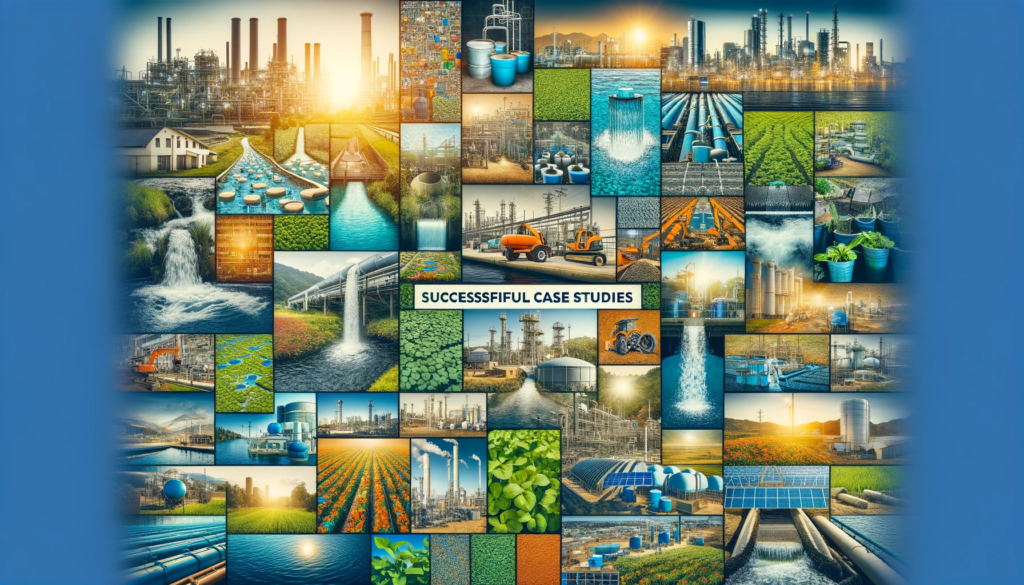
Case Studies: Success Stories in Water Reuse
Success in water reuse isn’t just a theoretical concept; it’s a reality in many parts of the world. Let’s dive into some case studies that exemplify the triumph of innovation and community engagement in water reuse.
Singapore’s NEWater
A shining example of successful water reuse, Singapore’s NEWater project has turned the nation from water scarce to water secure. Through advanced treatment processes and an exceptional public education campaign, NEWater has gained public trust and acceptance.
Orange County, California:
The Groundwater Replenishment System here is a testament to the possibilities of water reuse in urban settings. By treating wastewater to a high standard, the system provides a reliable water source for over 850,000 residents.
Israel’s Agricultural Reuse:
Israel leads the world in agricultural water reuse. Through highly efficient irrigation systems and water treatment technologies, reclaimed water accounts for nearly half of the water used in agriculture.
Namibia’s Windhoek:
As one of the first cities to implement direct potable reuse, Windhoek sets an example of resilience and innovation. Despite challenging conditions, the city has provided safe, recycled drinking water for decades.
These cases underscore that with the right combination of technology, policy, public engagement, and innovation, water reuse can be a sustainable and successful solution to water scarcity.

Conclusion
Fostering a Sustainable Water Future As we wrap up this exploration into the social dynamics of water reuse, it’s clear that the journey is as much about people, policies, and perceptions as it is about pipes and pumps. Water reuse isn’t just a technical solution; it’s a social revolution in how we value and manage our most precious resource.
A Collective Effort:
The successful adoption of water reuse hinges on a collective effort. It’s about communities coming together, policymakers setting the stage for innovation, and industries pushing the boundaries of technology.
Changing the Narrative:
By changing the narrative around wastewater, from a waste product to a valuable resource, we can unlock the full potential of water reuse. It’s about seeing beyond the ‘yuck’ factor and understanding the crucial role of water reuse in securing our water future.
The Way Forward:
The path forward is clear – continued innovation, robust public engagement, and supportive policies are the keys to unlocking the true potential of water reuse. By embracing these elements, we can turn the tides on water scarcity and build a more sustainable, water-wise world.
To gain deeper insights into the transformative power of water reuse, I encourage you to listen to the full interview with Austin Alexander right here:
Full Transcript:
These are computer-generated, so expect some typos 🙂
Antoine Walter: Hi, Austin, super happy to have you back.
Austin Alexander: It’s wonderful to see you again. It’s been a while and in person and in person,
Antoine Walter: absolutely. What do we use as one of these topics, which everybody throws around? We know that technologically speaking, we have the solutions. We know that it’s probably one of the best solutions to quench the word thirst and still we don’t do it.
So what’s your ratio for that? As the second largest water tech company in the world.
Austin Alexander: Earlier this morning we heard from Radhika Fox as well as some others around the people element of implementing water technology. And you said it best. We don’t have a technology problem when it comes to water reuse or many of the other water challenges.
Either it exists today or it is rapidly entering the market. So we’re not so worried about that. I shouldn’t maybe say that as a technology provider but frankly it’s not going to be the thing that holds us back the most. What will is two things finance and access to finance in an equitable way and into when we’re talking utilities communities that really are ready to implement reuse and get solutions out there that’s being solved but then it’s the people piece it’s the decision making and the political will when you’re talking community reuse but in industrial companies or corporates that are setting water targets.
the will to invest in their own water reuse on facilities. That piece, we’re seeing a change happen. And we’re really excited about the wave of change we’re seeing there.
Antoine Walter: What triggers that change and where do you see it happening?
Austin Alexander: I think it’s different by kind of sector of water. In utilities, municipal water, what we’re seeing, people are seeing the challenge, the climate change challenges we’re facing and it’s becoming so real.
that the political will to utilize reuse is overcoming what previous kind of misnomers about reuse may have challenged it in the past. So I think that in the public space.
Antoine Walter: So you’re saying we overcame the toilet to tap?
Austin Alexander: I think we’re getting there. Okay. That’s my personal sense is it feels like in more and more conversations, even with people not in the water sector, that openness to reuse is becoming better.
With still some hesitation, but I think it’s getting better. As well as the kind of political will to invest and really convince communities that this is the way to go.
Antoine Walter: I was super surprised on the topic of reuse. I’m French. Open secret. The French president, or the president of France, I have to decide.
He said last year that he wants to increase from 0. 7, 0. 8 percent where we are right now as a country, to 10 percent in water reuse. And as a reaction, people were surprised because they’re paying for waste water treatment. And they thought, I’m paying for waste water treatment, so that water must be reusable.
So. Why don’t we really reuse it? That’s where we’re starting from. The awareness in the population is fairly low. Yeah. That means before we get the political power to push for reuse, we need to empower them by helping to explain to people why wastewater treatment is not the same than wastewater reuse.
How do we do that?
Austin Alexander: I used to be an engineer, but now I work in sustainability and social impact asylum. And so I spend a lot of time working with our team on that question of how do we get, not the technology problem, but the will problem. It’s got to come from a lot of different places. I think water sector doing a better job of engaging the general public has to be part of our roadmap for the next five to ten years.
We, historically, as a sector, haven’t done that. And I think we’re really waking up to, and the public’s waking up to, how big the water challenges we face are, and we have to bring laws. the communities we’re operating in as part of the solution. I’ll do a small plug. One of our partnerships is with the Manchester City Football Club, soccer, football.
Please, football. We did a video a few years back now, but we’ve continued with videos with their coach Pap and others, and one of them was called The End of Football, and it was what does football look like in 2045 in water scarcity, and it reached. The numbers were enormous on the eyeballs that watched this video and understood the connection of water challenges to their daily life.
I think those kind of storytelling pieces are bigger than the technological pieces.
Antoine Walter: So that’s awareness. Now, how do you go into actually concrete steps? How can you as a corporate speed up things?
Austin Alexander: Our job is then, as communities are ready or companies are ready to implement reuse, to make that as easy and affordable as possible.
Antoine Walter: Affordability is, sorry, don’t want to cut you off, but affordability shouldn’t be the issue. Waste water reuse is four times cheaper than desalination and people happily desalinate.
Austin Alexander: How many people really understand those numbers? I think it’s getting that kind of awareness in front, understanding the economics, and then giving solutions that are, even as we can continue to improve the affordability of reuse solutions today, we’ll continue to do that.
That’s our duty as Xylem and a technology provider is how do we use digital, how do we use other technologies to continue to bring the cost down and make it as easy as possible. To implement reuse that will continue to get better and better over time.
Antoine Walter: I made a very simple calculation as to why Singapore reuses water.
And you show that it’s simply because it is the best solution in all dimensions. And it’s frustrating because when something has advantages and drawbacks, I understand. Why it takes time to get adopted when a solution has only advantages. I don’t get it. I’m dumbfounded Do you have an explanation as to why we’re still having that discussion in 2023?
Austin Alexander: I think part of it was there was certainly the kind of toilet to tap that slowed things down I think we’re getting over that one avenue that I think will be successful in kind of attacking the reuse Narrative is really kind of Re framing the problem around circularity. The original circular economy was water.
Actually, like, that’s, and can we re frame around the circularity conversation that’s gaining a lot of momentum and use that as a lever to say this is how we’re thinking about water. This is not just an endless resource. This is not just something we can take out of the ground or resources forever, but we have to think about it in a more circular way.
That is certainly, when I’m talking to other industrial companies and their sustainability teams. That’s how they’re thinking about it. This is a resource. How do I get the most out of it as possible while reducing impacts? Around me and reuse is often a top solution to do that that kind of reframing It’s at least how I’m thinking about it is one way we can start to breach that conversation
Antoine Walter: Peter Gleick was the keynote speaker today I don’t know if you’ve read his book on the three edges of water, but he’s showing a very interesting graph about water use correlated with GDP in the US and water abstraction fully correlates with GDP in the US until the late 70s.
And then, since the late 70s in the US, water use plateaued and GDP kept growing exponentially. He sees that as a sign that the US maybe entered the famous third age of water because they were able to decouple those two curves. Yet it’s an exception if you look at lots of countries worldwide. The industrial sector will be the one which has to de correlate that use of water and that growth curve.
How can you, as a very large tech company, support them in that exercise?
Austin Alexander: I haven’t read his book yet, but it’s on my reading list now. As we’re thinking about how we talk to other companies, we’re coming at it as a sustainability conversation because we are seeing genuine investment from some of the largest companies in the world into their water.
Sustainability overall, but water in particular, and especially for those companies that are high water use industries, food and bev, apparel, et cetera, that have, they’re realizing, oh crap, my business can’t survive with where projections are going for water. It is not only not just a nice to have, it’s a must have.
And that’s driving decision making and investments in a way we haven’t seen. I go back to UN Water Week in March and we all came and it was really fun. I was taken aback, frankly, by how many corporates were present and speaking and talking because they know how important water is to their business. And we see that here in New York this week as well.
There are so many companies here talking about water that maybe even five years ago weren’t and making real investments and commitments and updating their stakeholders on what they’re doing in a way we haven’t seen before. We’re really fortunate. We recently acquired a company called Evoqua that really does a lot in reuse and industrial water management because we see this as a huge potential for us.
Antoine Walter: I’m so tempted to open a huge sidetrack about how the UN Water Week was a great way to speak about a lot of stuff, but not much more than speaking, but I don’t want to You mentioned Evoqua. That is one of the levels on which you partner and team up. Are there other types of Partnerships which you’re developing as Xylem to address water reuse.
Austin Alexander: You know, we’ve kind of legacy made investments and partnerships through things like the water reuse foundation and others that are really driving thought leadership in this. This has always been a priority for us, particularly in Xylem is we’ve really more served. The municipal market reuse in the past and now have certainly built up those capabilities a lot more in industrial.
I think we’re paying a lot more attention to the public viewpoint. I mentioned that earlier with partnerships like Manchester city, et cetera. And I think you’ll see more of that flavor from us of where we can leverage our technology, but also our partnerships with really cool, unique partners to get the word out on things like reuse, but other water topics too.
Antoine Walter: A company like Epic cleantech, which is doing. On site water reuse. Would that be a potential partner? Is that a threat to Xylem’s business model? Because if everybody starts reusing water onsite, then
Austin Alexander: Look, I’m the sustainability person, so I’ll say, like, from too many market threads. I think for us, any technology investment in making water more efficient, we’re here for it.
You know, our mission statement at Xylem is, we aim for a world where water challenges no longer exist. And we know there’s not a one size fits all solution to that. It’s going to come from us, hopefully, but also many others. And it’s a good challenge for us to stay on the front line of technology through our own innovation, through our Xylem Innovation Labs, and through other avenues, to really stay at the forefront.
But frankly, I’d say pretty confidently, we support anything that is bringing water and reducing challenges.
Rapid fire questions:
Antoine Walter: I have specific rapid fire for that reuse topic. Let’s start with a one word game. Okay. If you had to describe the future of water reuse in one word, what would it be?
Austin Alexander: Bright. Like the future is bright.
You said rapid fire.
Antoine Walter: If you could instantly change one thing that would accelerate wastewater reuse, what would it be? I think public acceptance. What’s the most common misconception about water reuse that you’d like to debunk?
Austin Alexander: That it’s a nice to have, not a must have.
Antoine Walter: What’s one thing you’d urge listeners, be they investors, policymakers or entrepreneurs, to do after listening to this episode?
Austin Alexander: Your listeners are well educated on water issues. They understand the nuances of reuse. Your duty as listening to this Podcasts and as being a member of the water sector is to reach out to someone who doesn’t understand Rios Who doesn’t understand the challenges we face and educate them and if every listener of your podcast And I know you’ve got thousands of listeners pick one person and do that.
We’ve already made a small dent
Antoine Walter: Oh, so it’s frustrating because I would have so many more questions for you So you will have to be back at some point but the format today forces me to be short. So thanks a lot
Austin Alexander: Well, I appreciate the opportunity. Thank you. And it’s good to see you and so
Antoine Walter: see you soon. Thank you

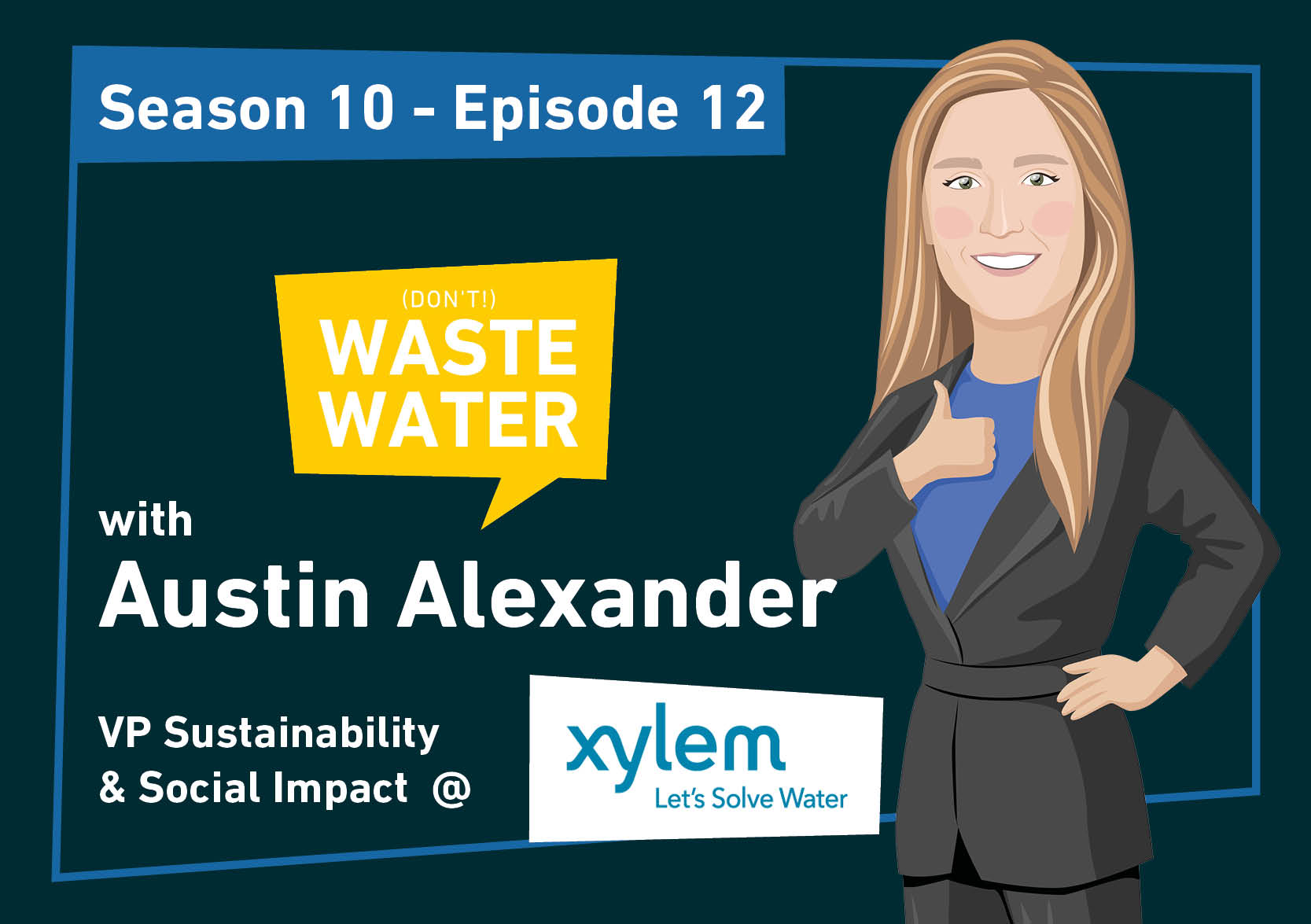

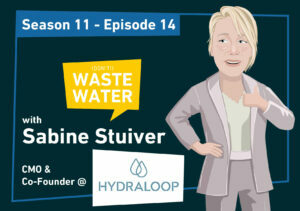
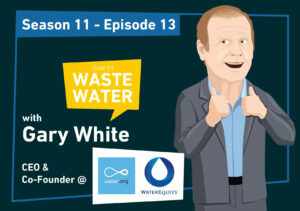
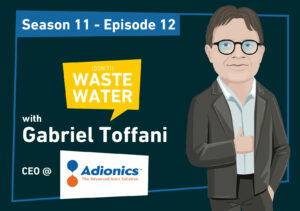
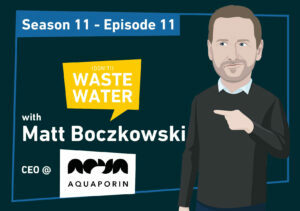
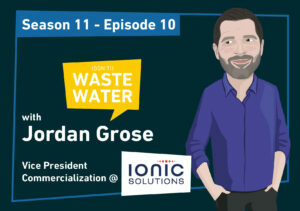
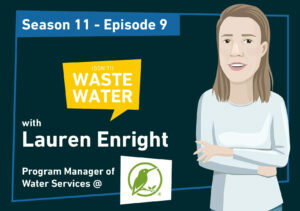
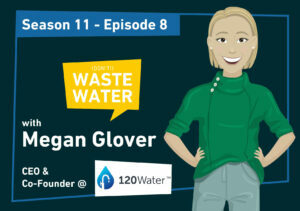
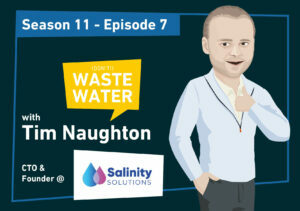
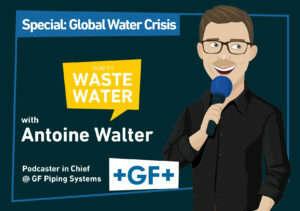
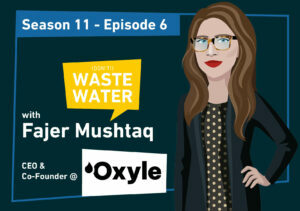
3 thoughts on “Beyond Technology: The Social Dynamics of Water Reuse”